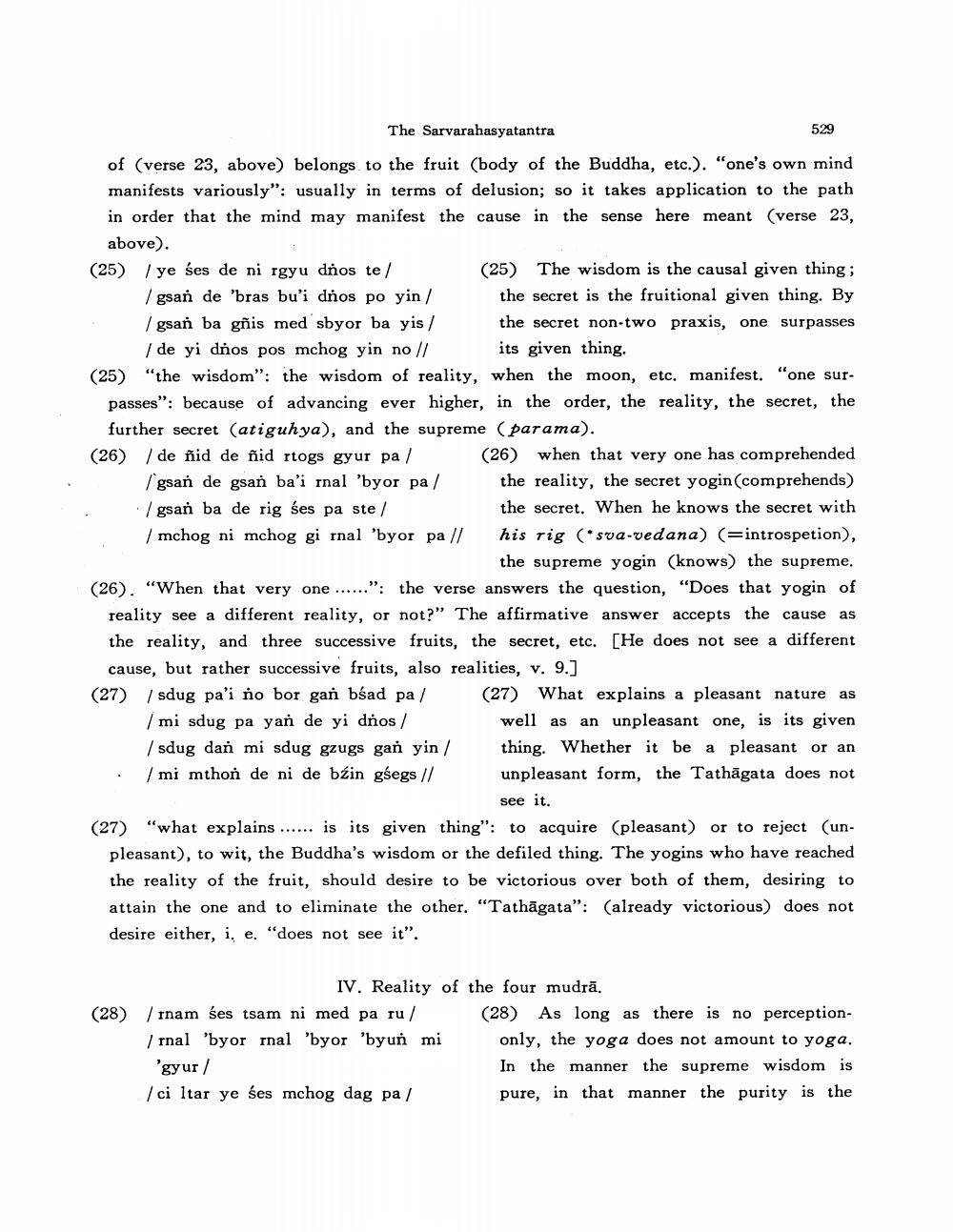Book Title: Sarva Rahasya Tantra Author(s): Alex Wayman Publisher: Alex Wayman View full book textPage 9
________________ The Sarvarahasyatantra 529 of (verse 23, above) belongs to the fruit (body of the Buddha, etc.). "one's own mind manifests variously": usually in terms of delusion; so it takes application to the path in order that the mind may manifest the cause in the sense here meant (verse 23, above). (25) / ye śes de ni rgyu dños te / (25) The wisdom is the causal given thing; / gsan de 'bras bu'i dños po yin/ the secret is the fruitional given thing. By I gsan ba gñis med sbyor ba yis / the secret non-two praxis, one surpasses de yi dños pos mchog yin no // its given thing. (25) "the wisdom”: the wisdom of reality, when the moon, etc. manifest. "one sur passes": because of advancing ever higher, in the order, the reality, the secret, the further secret (atiguhya), and the supreme (parama). (26) de ñid de ñid rtogs gyur pa/ (26) when that very one has comprehended gsan de gsan ba'i rnal 'byor pa/ the reality, the secret yogin(comprehends) . /gsan ba de rig ses pa ste / the secret. When he knows the secret with / mchog ni mchog gi rnal 'byor pa // his rig (*sva-vedana) (=introspetion), the supreme yogin (knows) the supreme. (26). "When that very one ......”: the verse answers the question, “Does that yogin of reality see a different reality, or not?” The affirmative answer accepts the cause as the reality, and three successive fruits, the secret, etc. [He does not see a different cause, but rather successive fruits, also realities, v. 9.] (27) / sdug pa'i no bor gan bśad pa/ (27) What explains a pleasant nature as / mi sdug pa yan de yi dňos / well as an unpleasant one, is its given sdug dan mi sdug gzugs gan yin/ thing. Whether it be a pleasant or an . /mi mthon de ni de bźin gśegs // unpleasant form, the Tathāgata does not see it. (27) "what explains ...... is its given thing": to acquire (pleasant) or to reject (un pleasant), to wit, the Buddha's wisdom or the defiled thing. The yogins who have reached the reality of the fruit, should desire to be victorious over both of them, desiring to attain the one and to eliminate the other. “Tathāgata": (already victorious) does not desire either, i, e. "does not see it". IV. Reality of the four mudrā. (28) / nam ses tsam ni med pa rud (28) As long as there is no perception | rnal 'byor rnal 'byor 'byun mi only, the yoga does not amount to yoga. 'gyur / In the manner the supreme wisdom is ci Itar ye ses mchog dag pa / pure, in that manner the purity is thePage Navigation
1 ... 7 8 9 10 11 12 13 14 15 16 17 18 19 20 21 22 23 24 25 26 27 28 29
